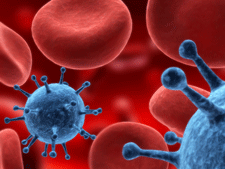August 17, 2011
The first few months after starting HIV treatment are pivotal in determining whether your first regimen will be successful. Yet if you are brand new to HIV/AIDS treatment, how can you know what success is? It can be hard to tell the difference between a warning sign that your regimen might not be right for you and a normal signal that your body is still adjusting to the medications.
No one wants to take medications that make them feel worse than before. It also seems pointless to take medication every day that isn't working right. It helps to pay close attention, communicate with your health care team, and be a part of every decision.
How do you really know if your HIV treatment is working? There are three key things to keep track of: how much your viral load is dropping, how much your immune system is recovering, and how you're actually feeling.
Is My Viral Load Dropping Enough?
The Basics: The goal of HIV/AIDS treatment is to disrupt the replication of the virus so much that the amount circulating in your blood is as low as possible -- so low that the blood tests you'll use to keep track of your HIV will report it as "undetectable." No matter how high your viral load is when you start treatment, "undetectable" is where you want to get.
The pace of HIV viral load decline can vary considerably from person to person, and it's very much influenced by how high your viral load is at the start. More virus for HIV medications to attack often means more time to reach an undetectable level.
It's unlikely your health care provider will even start checking your viral load until you've been on your medications for at least a few weeks. Although checking earlier may give you a sense of the pace of the viral load drop, it's getting to undetectable that really matters, and that can take time.
Different Definitions of "Undetectable": What makes conversations about viral load testing even more confusing is that "undetectable" doesn't always mean the same thing. Different clinics use different tests analyzed by different laboratories, and each lab may have a different cut-off point for the detection of HIV in a sample of blood. So if your lab test has 50 copies/mL as the lowest detectable amount, but your friend's lab test detects viral loads as low as 20 copies/mL, what does it mean if your friend has detectable virus and you do not?
 |
Obviously, less is better when it comes to HIV viral load. But we don't know precisely the significance of, let's say, 50 copies/mL versus 20 copies/mL. Measuring such tiny amounts of HIV in the blood is still tricky business, and there is even some question about how reliable those numbers are: If you were to repeat a viral load test, even with the same sample of blood in the same lab, the result would not necessarily be exactly the same.
The Mystery of "Blips": Even if you achieve an undetectable viral load (called "fully suppressed") and stay undetectable, it is possible you may experience a small rebound (to a viral load that's detectable but still very low, i.e., below 400 copies/mL). This is a viral load "blip."
There can be a variety of reasons for a blip (including lab variability or error), not all of which we completely understand. However, it does not mean the regimen has failed. Repeat testing will tell the story; if future tests show a three-fold increase or more in the amount of virus, then you and your provider may want to talk about switching to a different regimen.
The Bottom Line: Let's say you've been on your medications for several months, and what had been a consistent decline in your viral load has leveled out without reaching an undetectable level -- or, worse, your viral load is going back up. If this happens, you and your provider will want to figure out and address what might be slowing your treatment progress, and decide whether you need to switch regimens. The longer you stay on a combination that isn't fully suppressing the virus, the more risk there is of the virus becoming resistant to those medications, as well as other HIV medications you haven't even taken yet (called cross-resistance).
But when you're just starting out, as long as your viral load is generally moving toward undetectable, you're in good shape.
As Salam,
ReplyDeleteWelcome back.... sudah lama banget... tidak berblog...
Semoga semakin sehat walafiat selalu...
terima kasin dan amiinnnn
ReplyDelete